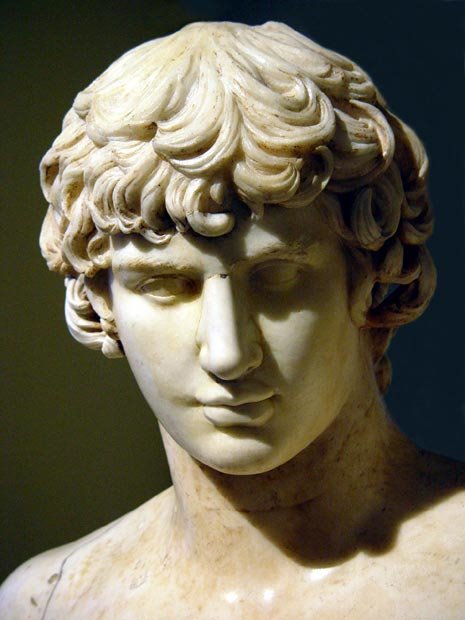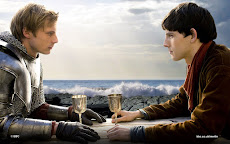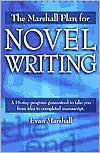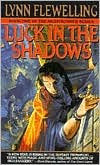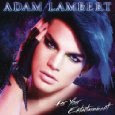My previous posting discussed the three levels or types of editing. In this
posting I'll share an example regarding scene-level editing using my current
editing project, the novel JACK & JILL: THE UNTOLD STORY.
Scenes work best when there is a TIGHT FOCUS on a SPECIFIC GOAL and a clear sense of the RESULT of the POV character's effort to achieve that goal in the here-and-now. The actual result may itself be clear or unclear to the POV character, but whatever the case, the result should be clear to the READER, including the fact that things may be unclear to the POV character. In other words, it's okay to keep the POV character guessing, but don't leave the Reader guessing -- let the Reader know clearly who the POV character is, what his/her goal is, what stands in the way, and how things turn out.
Here is a closer look. The following elements are essential to a tightly-
focused scene:
1. At the outset, the Reader wants to know where we are, what the basic situation is, who the POV character is, what time it is, what's happening around the character at this moment, etc. (i.e., "clue me in, please!"). The Reader also wants to know what the POV character is attempting to do, or what danger or risk he/she is facing. This poses a story question for the current scene, one that is IMPORTANT and provides a REASON TO READ the scene. Even if this scene is part of a subplot and not part of the main dramatic throughline, what is going on in this subplot needs to tie in eventually to the main plot, the way smaller streams feed into a larger river.
2. Once the basic idea of the scene is established, the Reader wants to follow along and even anticipate what the POV character is doing or will do in order to accomplish the goal, or escape from or face the danger (responding to danger provides its own obvious and immediate goals -- other goals need to be made clear since they won't be so obvious or immediate). In other words, the Reader wants to see COMPLICATIONS and how things move along. The Reader also wants to understand the RATIONALE for these efforts and these circumstances. The goal must pan out, must make sense once we see it in action. The complications need to make sense also, not seem contrived or too convenient for the story. Real characters face real obstacles with real stakes!
3. Eventually, the Reader wants to see how things turn out. They want to see the RESULTS of the POV character's efforts when confronted with the complications. They want to know if the POV character achieved the goal or not, why or why not, and where this leaves things: what's next? If the POV character did achieve his/her goal, then there must be some twist to that -- having "won", he/she finds that "winning" is not all it's cracked up to be. Having obtained something, the "something" poses a new set of problems. Having gotten the key to the vault, there is now the issue of a monster that stands in the way of using the key to get into the vault, or the key comes with a new group of thugs that want it back, etc., etc. The result answers the current story question and immediately poses a new story question: where next? I'll repeat that: WHERE NEXT? This adds something called suspense, AKA a REASON TO READ.
Now, to illustrate how I took a simple scene from JACK & JILL, my current WUM (work under the microscope), and edited it to make it more focused! This scene is short, basic and simple. I don't want to share anything that is more involved or important to the story since I don't want to give away anything more than that about the story.
You will recall that JACK & JILL is a fantasy novel which is supposed to reveal the true story behind the Jack & Jill nursery rhyme. In this "original version", the characters are Jacques and Giel, two seventeen-year-old boys who live in a small village somewhere in a fictional version of the Low Countries ("Benelux": Belgium, Netherlands, Luxembourg). You can read the Prologue and first three chapters on my fiction excerpts blog, ADRIAN'S FIX.
Now, to the SIQ (scene in question). In the ORIGINAL (first-draft) version, Jacques and Giel walk along a road, escaping from a great danger behind them. They're far enough from it at the moment that they can walk instead of run. They haven't slept in a while and decide to take a break in a quiet ravine where they will not be seen. Later, some local farmers find them there, fast asleep. The farmers realize Jacques and Giel are fleeing, and take them prisoner in order to hold them for the very "whatever" they were fleeing from. One of the farmers who finds them is named "Jori".
Challenge to the Reader: Before continuing, can you tell what's wrong with the original scene? Name at least two things.
In the REVISED (second-draft) version, Jacques and Giel are walking along the road when the farmer Jori happens by on a wagon pulled by a horse. Jori is alone, going about his own business. He figures out that Jacques and Giel are fleeing and sought after by the dangerous "whatever" of the story. Jori is supportive of them and their cause, and tells them how he will help them. He tells them to wait in the ravine until nightfall, when he will return to give them a ride to safety. Now, the boys have to decide whether or not to believe Jori. Jacques wants to trust him, Giel does not (of course). Jacques prevails, the boys go to the ravine, but they do not acknowledge knowing anything about whatever intrigue Jori is talking about. They say they just want to rest, and if Jori happens back later and can offer them a ride then, they will be happy to take it. Jacques decides to take the risk since he wants to trust the kind farmer, but also he realizes potential danger, so he is playing it safe by denying everything, including any knowledge of "whatever". Later, the farmers arrive and find the boys sleeping in the ravine. The farmers take them prisoner.
The revised version is better than the original version in the following ways:
1. The new immediate danger (the local farmers) is introduced earlier -- we know there are local farmers and at least one of them might pose a threat, before we are faced with a group of farmers arriving as a threat.
2. There is suspense over whether or not to trust Jori. The kindly old farmer makes a convincing case that he really is on the boys' side, and the Reader would have also have every reason to think he may actually be genuine, yet know he might also not be.
3. We suffer greater disappointment when the local farmers show up at the end of this sequence. Not only are we already familiar with the "whatever" that the boys are fleeing from (based on earlier scenes), but we have had time to reflect on the danger the farmers pose, and what it would mean if they were to get into the middle of things and ruin the escape. We feel disappointment that the kindly old farmer is really a nasty guy after all, betraying the boys and taking them captive to return them to the "whatever" from which they were escaping.
4. The new version involves a more significant CHOICE by the POV character (Jacques) -- Jacques decides to trust Jori, and stay in the ravine. Bad choice, of course. By making a choice, Jacques is taking an active role in shaping his own fate. This is stronger than having Jacques decide to stay and rest in a ravine that he just happens to find along the way. Compare: "We're so tired and we just happened upon this ravine and there is no one around -- should we rest here?" vs. "This dude named Jori seems to know our secret but I'm not sure, and he wants us to stay here at this ravine and rest and wait for him to come back to help us, but maybe he's going to betray us, I'm just not sure -- should we rest here?"
5. Something you couldn't have guessed because I didn't tell you enough details up front: The choice Jacques must make also creates FORESHADOWING. Soon after this, there will be another major choice when Jacques has to decide whether or not to trust someone else. Giel will be very much against it -- downright adamant -- but Jacques will have a lot of reasons why he must take the risk, reasons that have been worked in since the very beginning of the story. Jacques is indeed compelled to do something that will turn out to go very, very, very badly for him.
In summary, when writing a first draft we are seeking our story and might describe things as just "happening" to the POV character while feeling our way along. We should strive wherever possible to keep things goal-driven instead. When we edit, we must correct any events that "just happen" and turn them into events that involve a CHOICE by the POV character. At the outset, clue the reader in to the POV character, time, setting, etc., firmly establish the POV character's goal and give a clear rationale for the goal. Along the way, provide justification for the particular complications and reinforce the rationale for having this goal in the first place, in spite of the obstacles. At the end, make it clear how things turn out, even if the way things turn out is that the outcome is not clear -- let the reader know the POV character is unsure, but don't leave the reader unsure about whether or not the POV character is unsure. If the goal is reached, it turns out not to be as helpful as originally thought. There is a twist and a new set of complications that come from having reached the goal. If the goal is not reached, then it should have been and it's not having been reached creates additional problems. However things turn out, there must be a new question, stated or implied, a new direction, a next step. If scenes are goal-driven, you raise story questions, and provide twists and turns, the reader will find it much easier to maintain and build interest.
GOAL-DRIVEN WRITING GIVES READERS A REASON TO READ.
Best wishes for your own editing adventures,
Adrian
